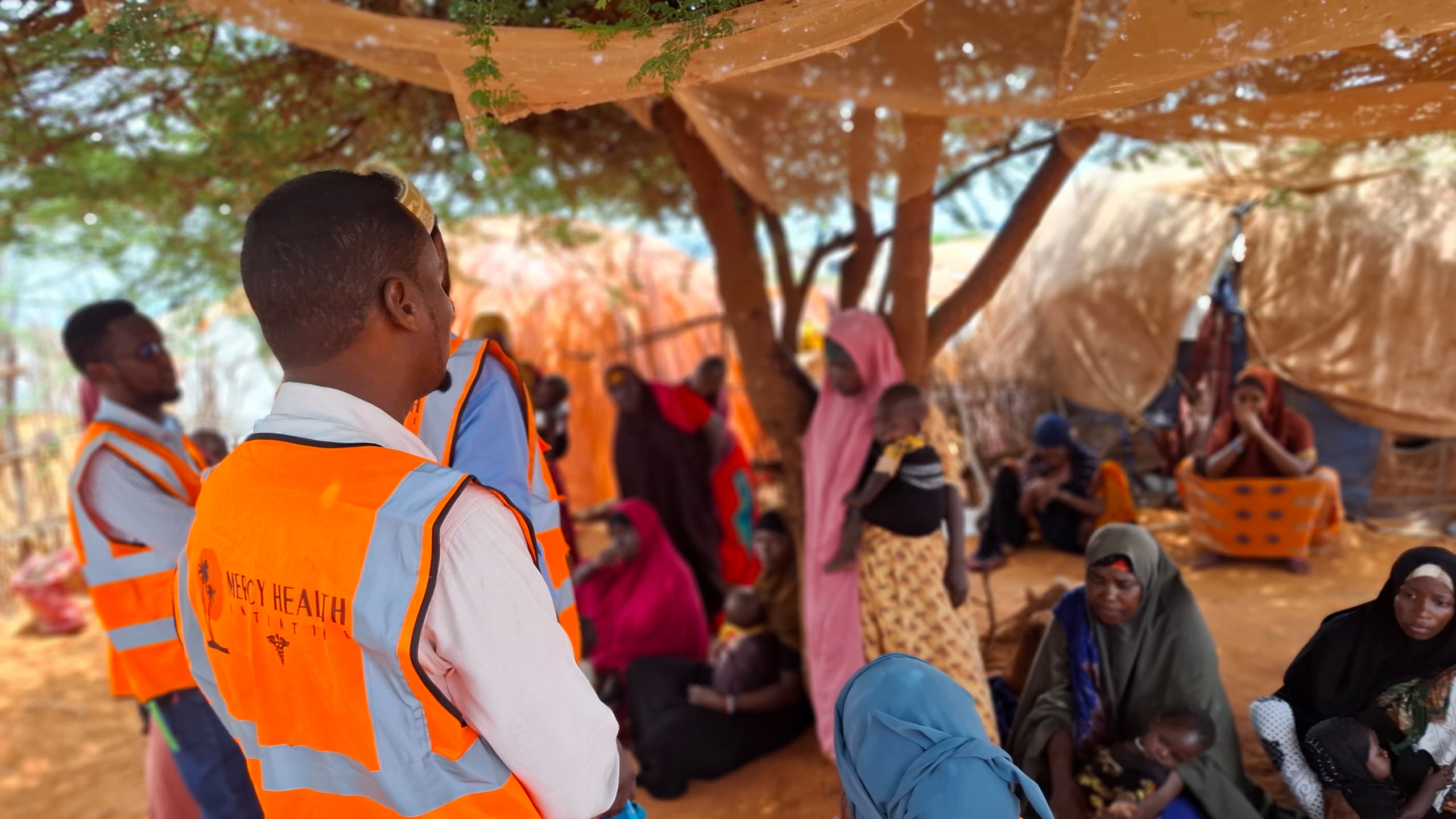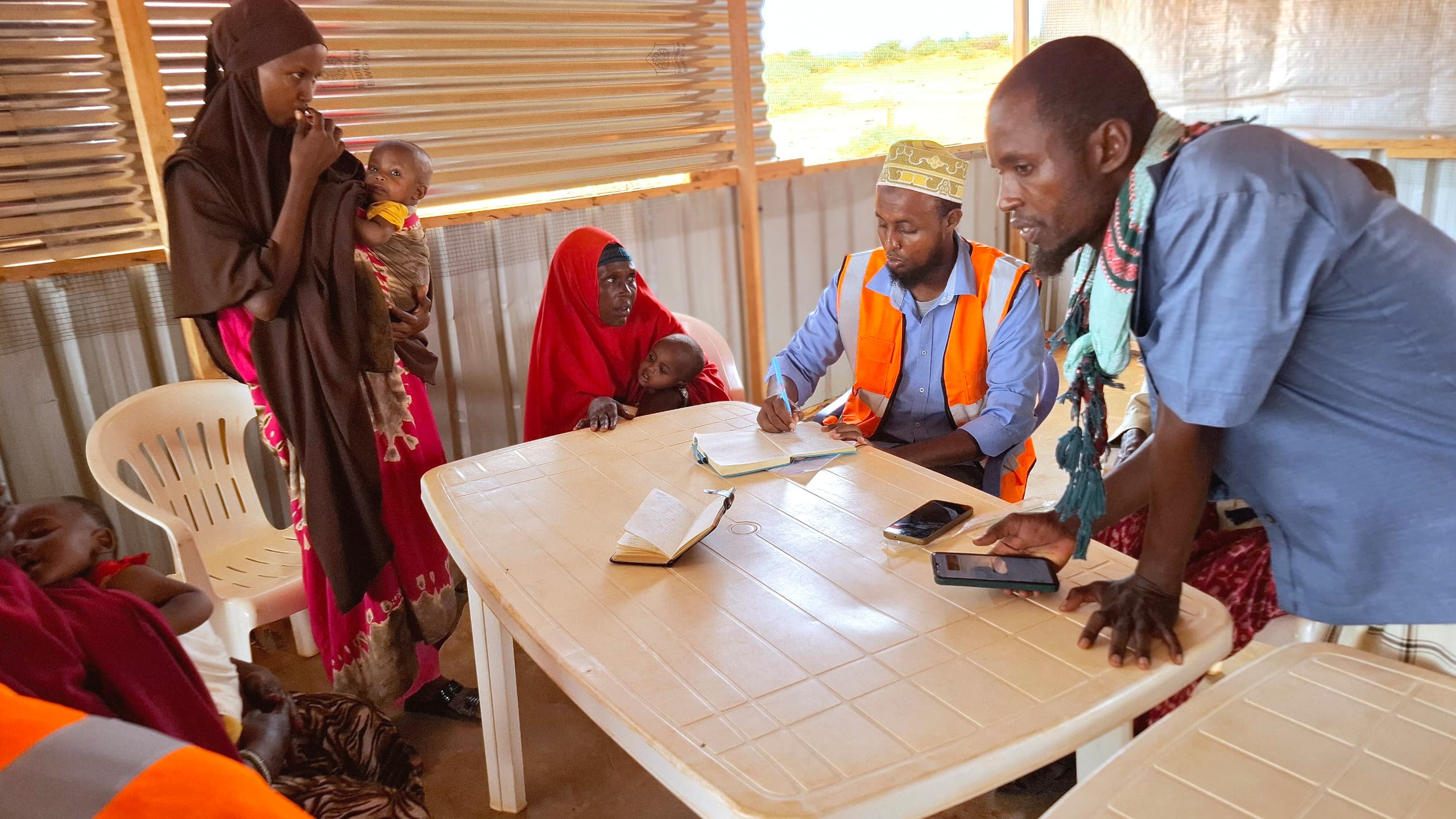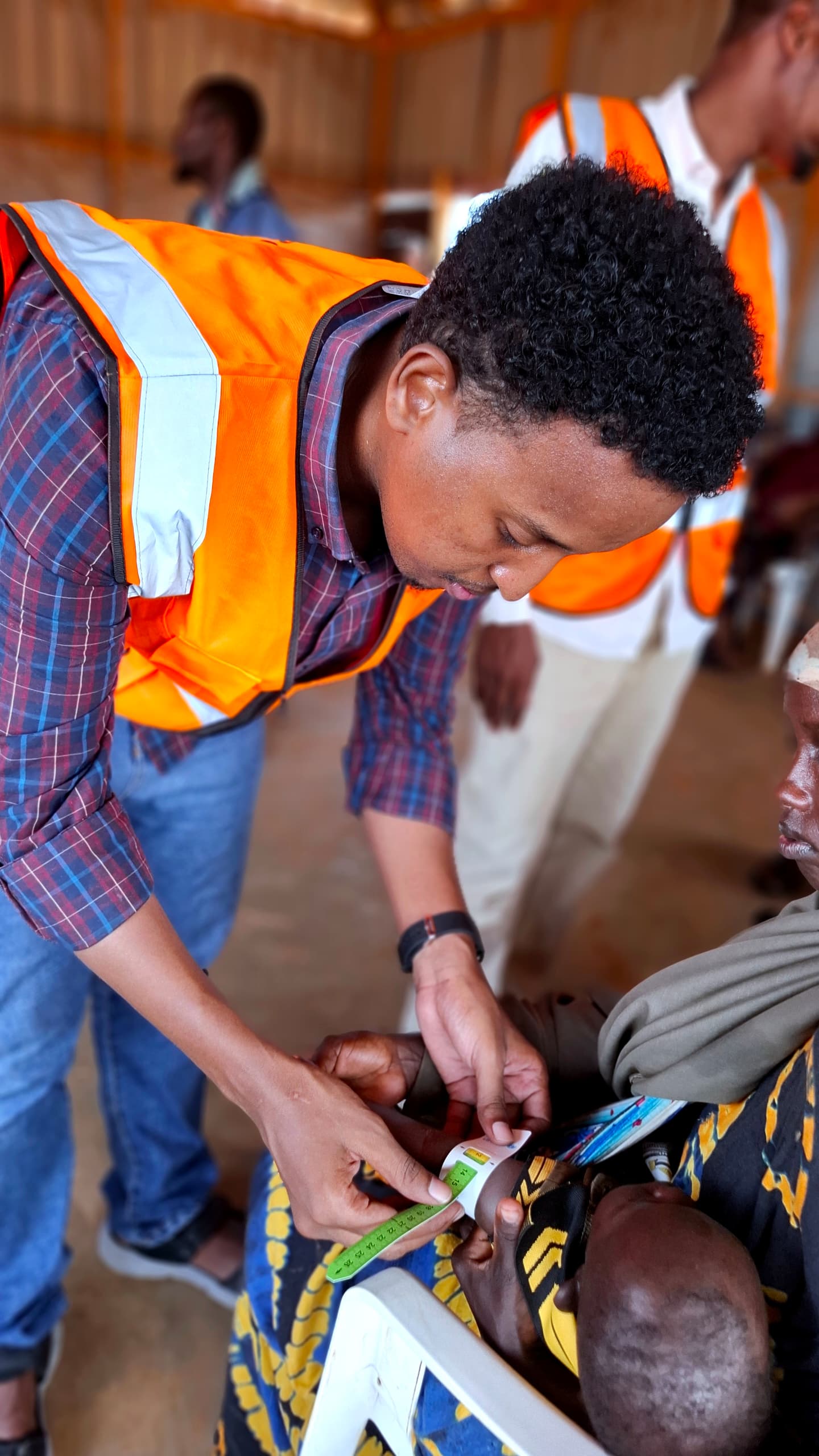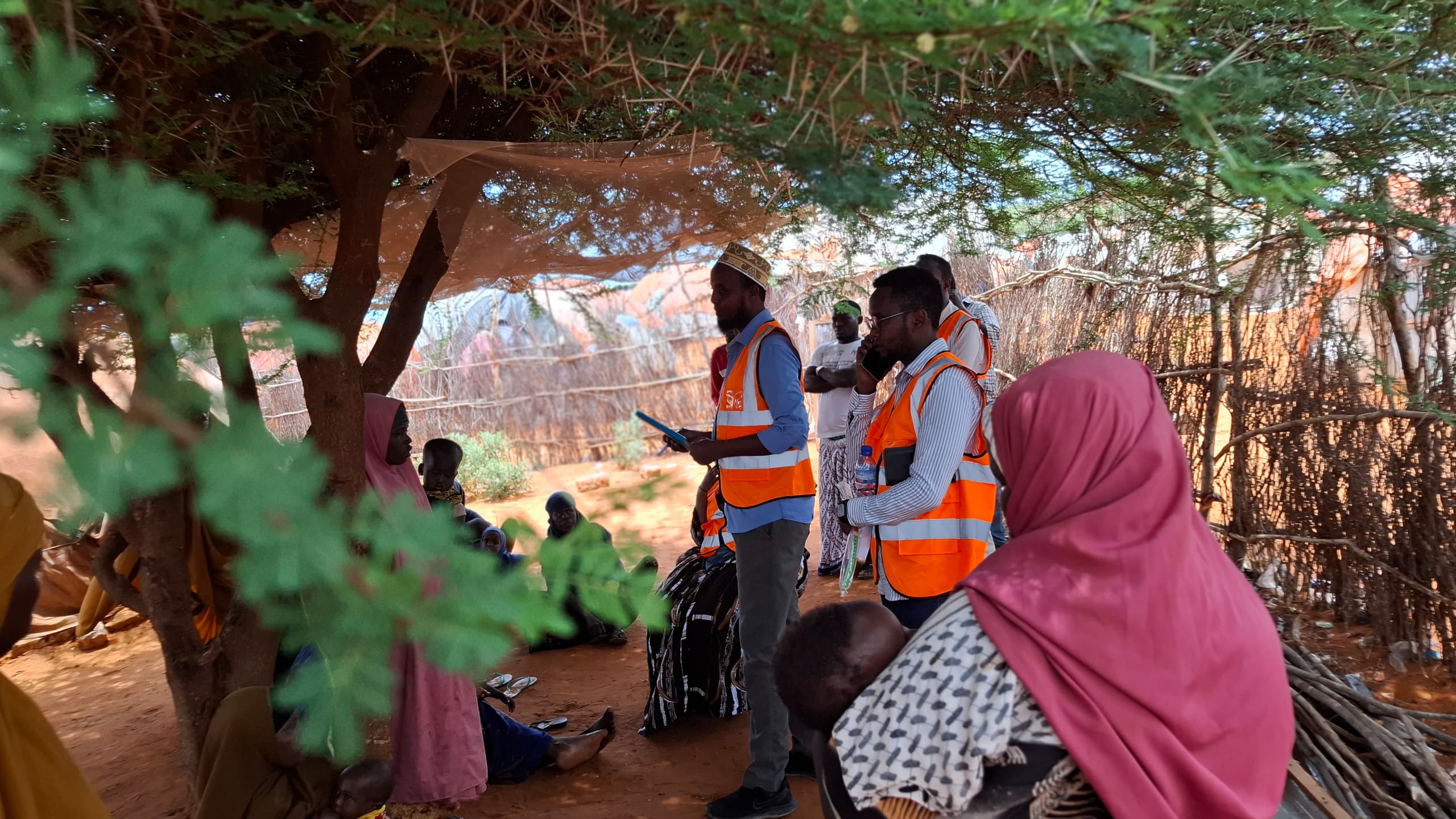About Mercy Health Initiative
A non-profit humanitarian organization dedicated to improving healthcare and alleviating suffering in Somalia.
Our History
MERCY HEALTH INITIATIVE is a not-for-profit and non-governmental organization established in 2015 in response to immense suffering caused by protracted civil strife that began in 1991. We are a non-political organization focusing on participation and partnerships to contribute to the relief of human suffering by offering appropriate solutions to the humanitarian catastrophe in Somalia, particularly in health affairs.
Registered in 2016, our goal is to provide free preventive and curative services, obstetric services to women, ante-natal and post-natal care, family planning services, maternity services, mother and child care, mental health services, humanitarian relief, and lifesaving services to communities in Somalia.
MERCY's initial drive to respond and alleviate suffering began with a pilot community-based relief and rehabilitation project, preceded by informal community networking and consultation on needs prioritization. Since then, we have successfully implemented over 10 projects ranging from relief and rehabilitation to development among some of the poorest communities in the Lower and Middle Juba regions of Southern Somalia.

Organizational Beliefs
We believe:
- In the potential power of the poor and rural people to participate actively in development initiatives within their community and promotion of health care.
- In equal opportunity for men and women in society irrespective of their class, age, race, ethnic background and religion.
- Freedom for work, education and health development.
Program Performance Management
The program work plan is jointly reviewed on quarterly basis by the technical staff working in the field and the Board members. This follows immediately the technical staffs present the achievements against targets for the preceding quarter. Achievement and situational reports are shared with the donors on monthly and quarterly basis.
Funding Sources
MERCY is a non-profit NGO that depends on both local and international donors to be able to carry out its programs and indeed to support the most vulnerable communities. The donors include UN agencies, International NGOs, local communities, individual well-wishers and the Somalis in the Diaspora.
Core Programs and General Areas of Focus
Health and Nutrition
MERCY will involve in Primary Health Care and provides prevention, curative and control services including child and maternal healthcare, expanded program on immunization (EPI), micronutrient deficiency disorders, management of common diseases and awareness raising, advocacy and management of HIV/ADs. MERCY participates in controlling spread of HIV/AIDS in the region through awareness campaign. Hailing from a Muslim community which stigmatizes persons with HIV/AIDS, MERCY is focusing to expand its programs to HIV and disability.
To protect the productive human resource from the risk of the destructive killer of HIV/AIDS; MERCY shall:
- Support HIV/AIDS prevention activities
- Promote care for people living with HIV/Aids
- Reduce social stigmatization of people living with HIV/AIDS within the community
- Establish youth counseling centers and networks
Peace Building and Conflict Resolution
As the main objective of MERCY, we envision to see peaceful society in the horn of Africa which is at peace with its neighbors. Since the collapse of the central government in Somalia, there has been an escalation of conflict which has left hundreds of thousands dead, and others to languish in poverty in the neighboring countries as refugees. These conflicts had been encouraged by scares resources, poverty clan wars and temporary unstable administrations. It is when communities are peaceful that you can feed them, provide essentials services to them, and engage in humanitarian activities.
In response to this, MERCY conducts the following activities:
- Consultative forum on peace building and reconciliations
- Consultative Workshops on peace Building
- Advocacy and awareness on consequences of radicalization and violence; and importance of peace and reconciliation
- Participatory peace education curriculum development and adoption
- Promotion of youth to participate in post conflict peace building and reconciliation through theatres
- Supporting Cross-Border peace and reconciliation
Water, Sanitation and Hygiene (WASH)
MERCY will improve access to safe water and sanitation for vulnerable communities by constructing shallow wells, water reservoirs and water pans, creating access to clean water sources for people and also teaching communities about the importance of hygiene for health and installing latrines in remote villages. These will be achieved through:
- Digging of water wells by machine and by hand and rehabilitating the existing ones.
- Building rainwater runoff storage systems. These usually route water from rooftop in to a large tank
- Excavate ponds called water pans to collect rainwater, which can be used for people or animals, depending on the circumstance
- Establish sustainable management promoting community cost-sharing of capital and ongoing costs; training of local water committees to ensure proper maintenance needs and management
- Increase participation of women, in the management and maintenance of water and sanitation intervention, and promotion of improved hygiene and environmental sanitation practices
- Provide emergency shelter in coupling or decoupling with E. sanitation
- Rehabilitation of Ventilated Improved Pit (VIP) latrines and incorporate training community members on good hygiene and sanitary practices
Food Security, Livelihood and Microfinance
MERCY aims to enhance food security, nutritional status and improvement of self-reliance by improving household food self-sufficiency and income; increase supplies at market level through the rehabilitation and development of production systems. This program also seeks to enhance self-reliance in food security and nurturing of key communal resources and services. It addresses poverty and vulnerability through early recovery, rehabilitation and development programs so that the target people become more resilient and less vulnerable. It also creates a choice of alternative livelihoods for enhanced access to adequate and sustainable income and resources to meet their basic needs in short term and coping with shocks in the longer-term.
To improve emergency preparedness and response mechanisms MERCY will undertake these interventions:
- Rehabilitate farmers' irrigation schemes, including support to suitable management and operation systems
- Support to pastoral/agro-pastoral production systems, including semi-urban and urban livestock production
- Intervene in restocking emergency operations
- Collaborate with other agencies involved Food Security programs
- Increment of entrepreneurial ventures
- Increased levels of computer literacy levels
Youth Resource Center and Vocational Training
Youth Resource Centre aims to provide a range of support services and structured programs for young people aged between 15-35 years and their families.
MERCY will provide access to information and interaction among peers across all youth age groups, gives resources including computers, educative visual equipment, literature, indoors and outdoors sports and games. Some of the activities that will take place in the resource center are information, communication and education on health and other key issues that affect the youth. These will be done through providing a conducive and youth friendly environment where the youths can interact, relax, learn and innovate, while at the same time receive referral services by the providers on health matters.
To empower youth and women improve their livelihood through skills training as income generation, MERCY shall:
- Establish Vocational training centers for hopeless youth to empower them earn their livings through the skills gained
- Provide basic health to the target community
- Support activities aimed at improving employment opportunities for trained graduates
- Put in places mechanisms that will improve future sustainability of vocational training centers
- Improve linkage with other Skills/ Vocational training Centers for cross learning and experience sharing
- Combating exploitive child labor, human trafficking, and conflict through programs to improve economic opportunities through literacy and job skills training
- Supporting alternative and transitional education programs that address illiteracy and innumeracy through accelerated learning principles, partnered with practical job skills, leadership and life skills curricula to assist students' transition to more formal learning opportunities or gainful employment
- Developing customized internship and mentoring programs to ensure that the trainee has continued support while adapting to a new work or educational environment
Social Mobilization and Advocacy on Governance and Human Rights
To Increase community awareness about social issues that affect them and advocate for policies that promote positive development. This is done by encouraging the youth and women in useful and interesting activities that would educate and inform them about governance and democracy, human rights, other social problems through forums, meetings, arts, drama and poetry for better impact.
The program also helps locals to articulate, lobby and advocate for their socio-economic and political interests. Promotion of gender equity, women leadership and a voice in decision making are key parts of this program area.
To educate the youth and women on the issue of the country's government system administration in order to make them conversant with their rights regarding the constitution. This will be through, civic education, the use of the media, seminars and educational forums among others.
Peace Building
MERCY mandate is to promote Peace, unity and justice through mobilization and formulas for action. This is aimed at transforming conflict and destruction into a constructive force which supports positive social change, protecting people and its environs.
MERCY promotes peace building through dialogues, awareness and consensus around issues pertaining to reconciliation, peace-making and good governance through civic education. The Centre will also organize community workshops on peace building, human rights and good governance not forgetting specific rights on youth, children and women.
Protection and Gender Based Violence (GBV)
This seeks to improve the protective environment of the vulnerable groups especially women and children. MERCY monitors and reports on cases of sexual and gender-based violence and other forms of human rights abuse while spearheading efforts of mainstreaming SGBV and sexual exploitation and abuse (SEA) into other activities such as livelihood.
The same efforts extend into facilitating community initiatives to address stigmatization. For victims, MERCY operates referral systems that incorporate trauma healing, psychosocial support and basic services.
MERCY conducts forums, seminars and workshops on FGM, child labor and other related SBV through the assistance of Nurses and case studies.
Protection of Distinct Species in the Sea
Protection and management of some species in our natural environment like sea turtles require multi-lateral corporations and agreement to ensure the survival of these highly migratory animals. The MERCY organization should involve:
- Training of fishermen on these species and environmental degradation
- Community awareness on these species and scarcity
- Engaging government on the protection of species through training and dialogue
Coordination, Linkages and Networking
In order to contribute to other people's efforts, Mercy Health Initiative strives to understand their priorities and gain their support. Through these efforts the organization has reputable recognition and good working relations with donors in the Diaspora, the community and other stakeholders' levels.
Mercy Health Initiative is represented in the NGO consortium meetings at the field levels. Best practices and recommendations from such meetings are included in our action plans for implementations depending on the priority and practicality.
Monthly achievements, challenges and recommendations are also discussed jointly in the Board members and the program technical staffs' monthly meetings.
Achievements and Previous Assignments
Mercy Health Initiative is among the best rated International Non-Governmental Organizations that has successfully worked in East and Horn of Africa under difficult security situations. It has worked and successfully implemented development and humanitarian projects particularly in the health sector and its main target group being women and children.
Implemented Projects
[Project implementation table will be added when provided]
Key Facts
Established
Founded in 2015 and officially registered in 2016 to address humanitarian needs in Somalia.
Operational Areas
Active in 4 districts in Lower Juba: Kismayo, Afmadow, Dobley, and Badhaadhe.
Our Team
20 permanent staff across all offices and over 40 contractual staff implementing projects.
Headquarters
Main office in Kismayo with branch offices in Dobley, Afmadow, and Badhaadhe.
Communities Served
Pastoralists, farmers, agro-pastoralists, fishing communities, urban and rural populations, returnees, and Internally Displaced Persons (IDPs).
Projects
Successfully implemented over 10 projects ranging from relief and rehabilitation to development.
Our Leadership
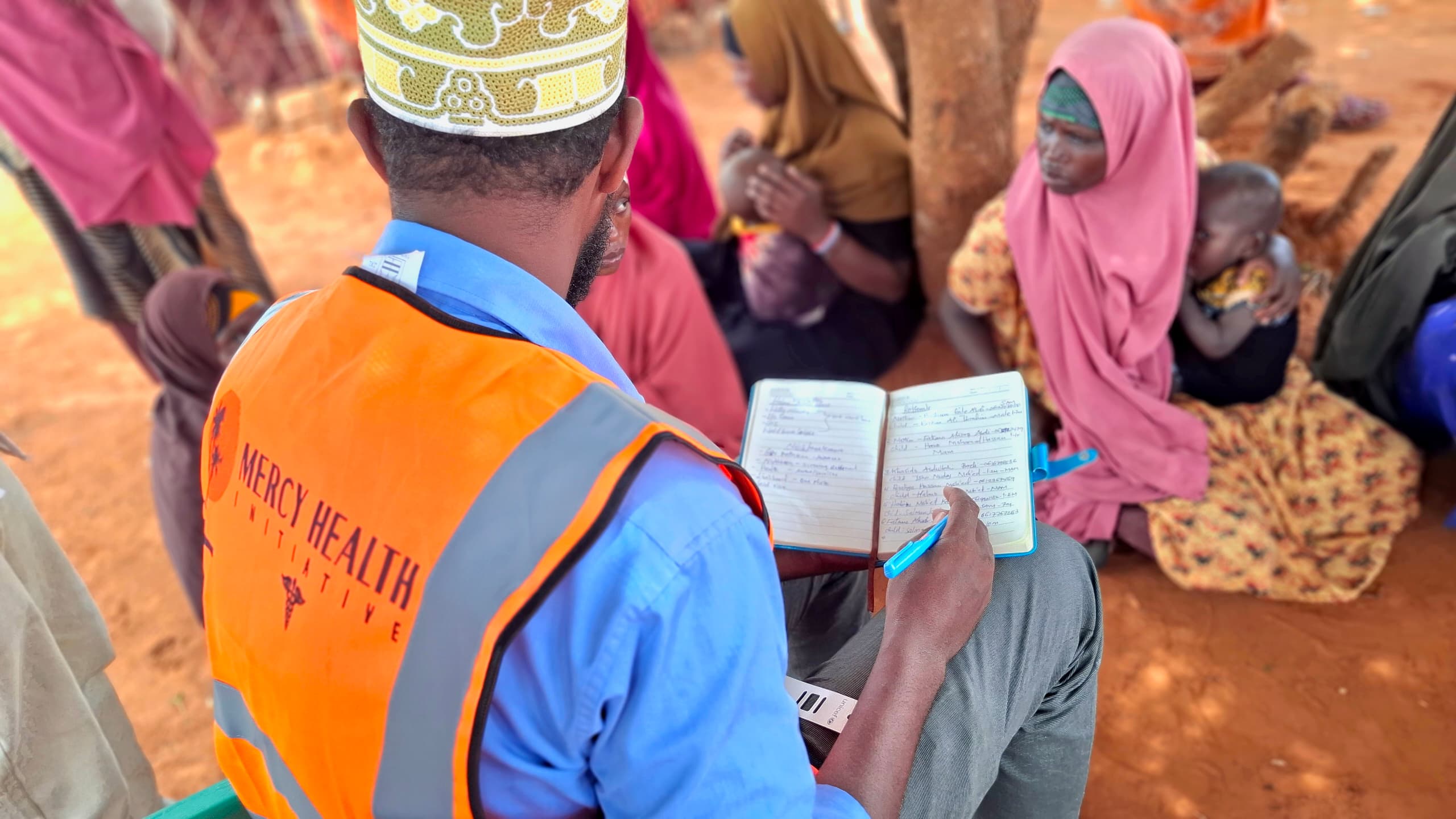
Dr. Ahmed Hassan
Board Chairperson
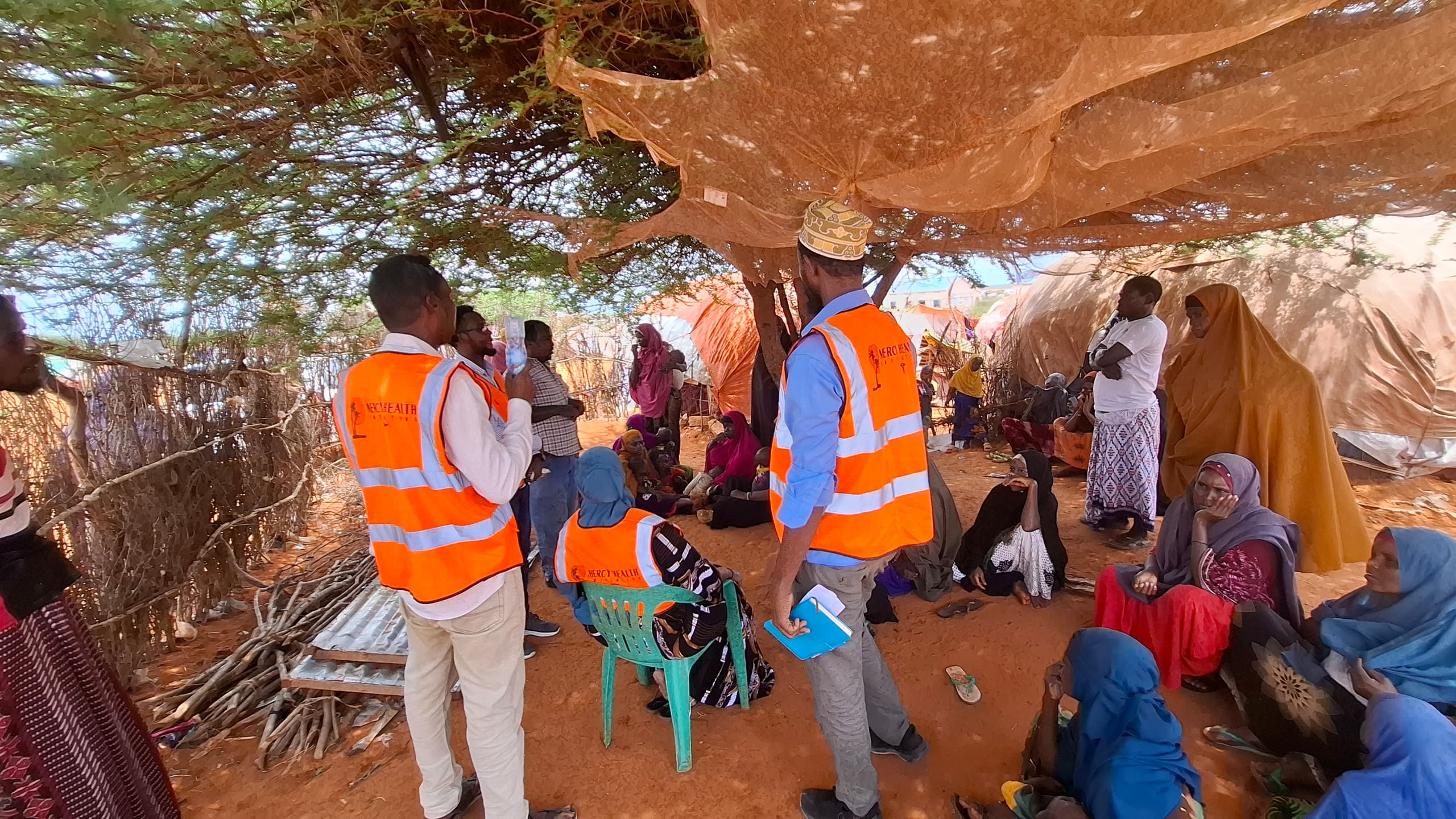
Dr. Mohamed Abdirahman
Executive Director
Halima Sheikh
Programs Director
Dr. Fawzia Ali
Medical Director
Our Approach
MERCY has clear strategies and operational policies on how it conducts its affairs and interventions, covering staff and personnel welfare, operations, and safety, especially in emergencies considering the insecure environment in which the organization operates.
The organization works at the grassroots level to enhance the capacity of communities it works with, enabling them to respond to their basic needs using first and foremost, their local resources. MERCY also advocates for the plights of its target community to elicit actions on their needs and interests in the international arena.
In addition to meeting the needs of the communities, the organization designs and implements its projects through a participatory development model in order to empower local communities. We have built our reputation as a distinct organization with partnerships at grassroots levels, as an implementing agency and information-sharing partner.
Governance & Structure
Board of Directors
Mercy has a board of directors consisting of five members (3 males and 2 females). The board is the decision-making arm of the organization charged with networking, fundraising, overseeing, and other important roles.
The board meets once every three months and in the case of extraordinary circumstances, meetings may be called by 2/3 of the Board of Directors or the chairperson.
Operational Team
Mercy has an operating team of 20 permanent staff across all its existing offices and over 40 contractual staff. They are charged with the actual implementation of projects as well as maintenance of secretarial activities.
Our team consists of healthcare professionals, project managers, community outreach workers, and administrative staff dedicated to fulfilling our mission of improving healthcare access in Somalia.
Future Plans
Training Facility for Nurses and Midwives
Mercy Health Initiative is planning to establish a training facility that will facilitate the training of nurses and midwives. This facility will have a positive impact on the health challenges in the region by producing qualified healthcare professionals who can attend to the population's needs.
The training facility will help narrow the distances traveled to access healthcare services. Ante-natal, post-natal, and maternity services for inpatients will become more accessible to communities across our operational areas.

